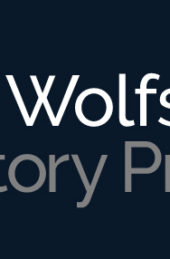What first attracted you to the period or periods you work in?
I’m careful not to get too trapped in any one period! My particular interest is in individuals – often quite ordinary people – who find themselves cast into an extraordinary situation. I use their story to open a window onto an entire period, using a narrative approach to reveal an often-unknown chapter of history. An example is my book White Gold, which follows the story of a young Cornish cabin boy named Thomas Pellow. Captured by Barbary pirates in 1716 and sold into Moroccan slavery, his story sheds fascinating light on the complex issue of white slavery, one that is little known and even less discussed.
Can you tell us a little more about how you research? Has the process changed over the years?
I like to construct my narratives, wherever possible, from primary source material – diaries, letters, unpublished typescripts and oral interviews. This often necessitates many months of research in order to locate people with such material in their possession. To give an example… for my book Churchill’s Ministry of Ungentlemanly Warfare, I tried to locate the families of the six mavericks in Churchill’s secret Ministry – those who planned all the most audacious guerrilla operations of the Second World War. My hope was that these families would have their own personal archives. And they did! One of them, the daughter-in-law of weapons designer Cecil Clarke, had an entire bedroom filled with diaries and letters – including letters from Winston Churchill.
The common phrase is that history is written by the victors. Do you think this is true?
Largely, but I think people are increasingly interested in hearing it told from different points of view. Many readers have told me how fascinated they were to read about the Normandy landings from the German perspective in my book about D-Day.
Are there any historians who helped shaped your career? Similarly, can you recommend three history books which budding historians should read?
I really admire what I’d describe as the first generation of narrative historians: Peter Hopkirk, Peter Fleming, Steven Runciman and David Howarth. I just re-read Hopkirk’s The Great Game: it’s a highly complex story told with clarity, deep insight and a dash of humour.
If you could meet any figure from history, who would it be and why? Also, if you could witness any event throughout history, what would it be?
It would be Sir Walter Ralegh – one of the great figures of the Elizabethan and Jacobean period who, in so many way, seems close to our own world: a self-made social climber, flamboyant, a show-off, a self-promoter, who was nonetheless a genius at unrolling the frontiers of the Golden Age of exploration. Ralegh was also a sublime writer: his Discoverie of Guiana is a work of genius, as well as being a beautifully written work of propaganda. The early colonisers of America (notably the Jamestown settlers) owe a debt of gratitude to Ralegh’s early colonisation efforts in the 1580s. Without his trailblazing efforts, America – for good or for ill – might never have been colonized by the Anglo-Saxon world.
If you could add any period or subject to the history curriculum, what would it be?
Two subjects that are very rarely even mentioned at school. The first is the East India Company, which played such a vital role in 17th and 18th century global history. It was also the world’s first global corporation, an operation with extraordinary rapacity and displaying often eye-stretching willingness to resort to violence. It was the subject of two of my books, Nathaniel’s Nutmeg and Samurai William, which examined the Company’s role in opening up the world.
I would also like to see the white slave trade taught in schools. While this was nowhere near on the scale of the black slave trade – indeed the two should not be compared – it nevertheless saw the enslavement of up to one million Europeans between 1600 and 1800. Most of these Europeans were sold into slavery in North Africa, having been captured at sea or snatched from the coastal villages of Britain and mainland Europe. I wrote about it at length in my book White Gold. It’s worth remembering that many hundreds of British nationals were seized and sold into slavery in the very year that Rule Britannia (‘Britons never shall be slaves’) was composed.
If you could give a piece of advice to your younger self, either as a student or when you first started out as a writer, what would it be?
The same advice as I still give to myself, every day of the year. Write, write, write, even if it’s no good. It’s easier to rewrite a poorly written draft than to fill a blank page.
Can you tell us a little bit more about the project you are currently working on?
My latest book, published June 2021, is Checkmate in Berlin. Its subtitle gives a few more clues: The Cold War Showdown that Shaped the Modern World. It’s the story of the dramatic breakdown in relations between the western powers and their erstwhile Soviet partners, followed by the rebuilding of Western Europe under the protection of NATO.
It’s told through the prism of the four sector commandants: American, British, Soviet and French, whose personal rivalry perfectly mirrors the geopolitical rivalry at the end of the Second World War. The two biggest characters are the American cowboy commandant of Berlin, Col. Frank ‘Howlin’ Mad’ Howley and his So






